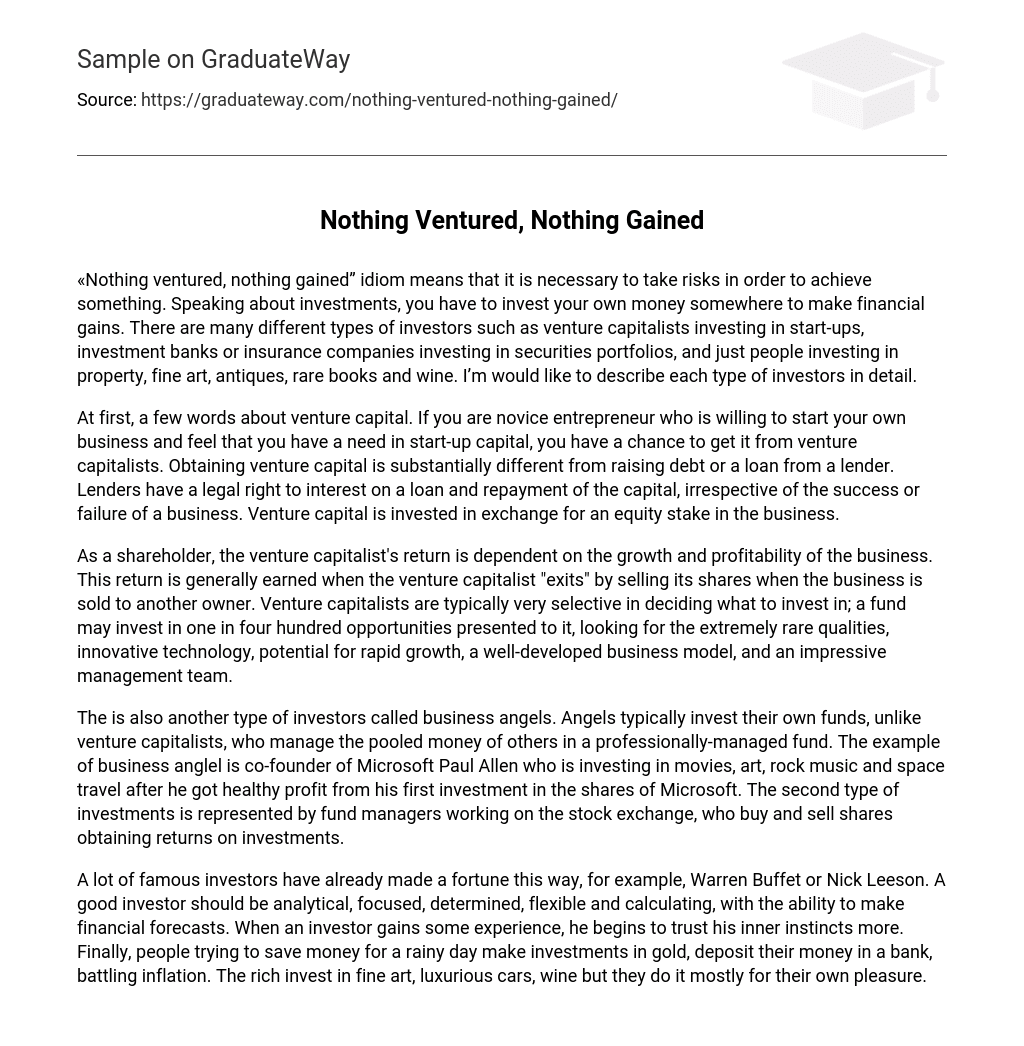The idiom “Nothing ventured, nothing gained” highlights the significance of taking risks for accomplishing success. In terms of investments, this implies that one must invest their own money to reap financial benefits. There are different types of investors including venture capitalists who invest in start-ups, investment banks or insurance companies that invest in securities portfolios, and individuals who invest in property, fine art, antiques, rare books, and wine. I will provide a comprehensive explanation of each investor category.
Venture capital is a unique source of start-up capital for aspiring entrepreneurs. Unlike loans from lenders, venture capitalists offer funding in exchange for ownership of a portion of your business. While lenders charge interest and expect repayment regardless of the business’s success, venture capitalists provide support without those obligations.
For shareholders who are venture capitalists, their return on investment relies on the business’s growth and profitability. Typically, this return is attained by selling shares when the business is sold. Venture capitalists meticulously select their investments, often choosing only one out of four hundred opportunities. They look for qualities like innovative technology, potential for rapid growth, a well-established business model, and an exceptional management team.
There are two types of investors in the investment world. The first group is comprised of business angels who utilize their personal funds for investing. In contrast, venture capitalists manage a professionally-run fund that consists of contributions from others. Noteworthy business angels include Paul Allen, a co-founder of Microsoft, who has made investments in diverse areas like movies, art, rock music, and space travel after his initial successful investment in Microsoft shares. Fund managers form the second category of investors and operate within the stock exchange industry by buying and selling shares to generate returns on their investments.
Many famous investors, like Warren Buffet or Nick Leeson, have made a lot of money using this approach. It is crucial for an investor to have analytical skills, a focused mindset, determination, flexibility, and the ability to make calculations while predicting financial outcomes. As investors gain experience, they become more reliant on their instincts. Ultimately, individuals who want to save money for unexpected situations choose to invest in gold or put their funds in banks to counteract inflation. On the other hand, wealthy people invest in exquisite art pieces, luxurious cars, and wine primarily for their own pleasure.





